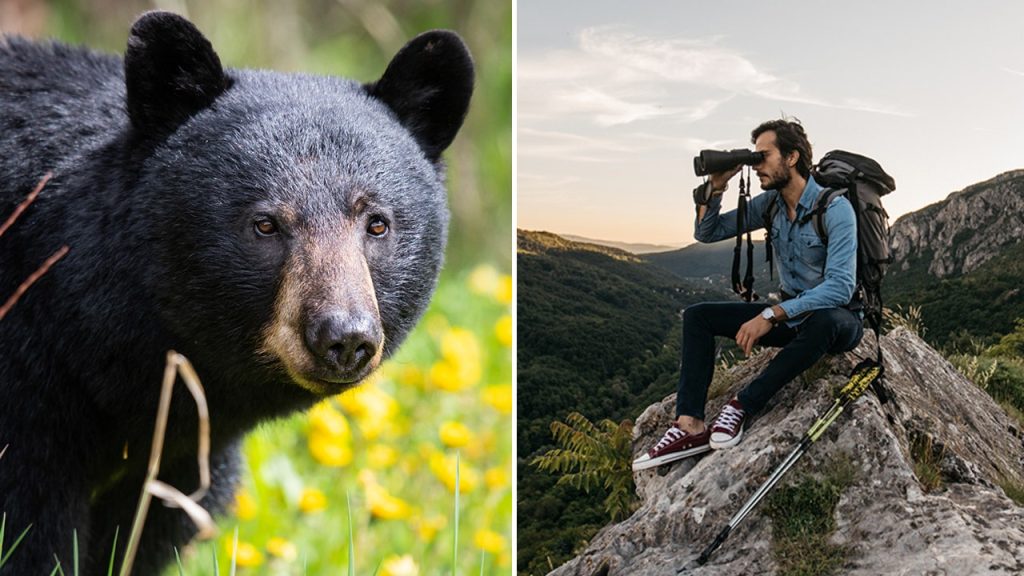Social media videos of black bears rummaging through trashcans, raiding bird feeders, or scavenging food in backyards are becoming more common, but encountering a black bear in person can be dangerous. Research shows that interactions between bears and humans are increasing in 18 states across the U.S. Data compiled by the International Association for Bear Research and Management in 2022 revealed over 46,000 incidents involving bears reported to state agencies. Wildlife biologist Tommy Campbell explains that human encroachment on bear habitats is leading to bears becoming habituated to human encounters, making them less afraid of humans than before.
To reduce the risk of attracting black bears to residential areas, Lt. Aaron C. Morrow advises eliminating potential food sources like bird feeders, garbage cans, and backyard grills. Bears that become accustomed to human-provided food can cause property damage and increase the chances of a dangerous encounter with humans. Morrow suggests securing all food sources and asking neighbors to also remove attractants to prevent bear sightings in residential areas. It is important to keep attractants like garbage cans and bird feeders unavailable to bears.
If a person comes across a black bear, it is essential to keep a safe distance, remain calm, and not run away as it may trigger a chase response. Morrow recommends backing away slowly in the opposite direction and making loud noises or banging pots and pans to scare the bear away. Once the bear leaves, it is crucial to secure all food sources, such as bird feeders and garbage containers, to prevent future encounters. Hiking enthusiasts and hunters may also have encounters with black bears and should be prepared to follow the same precautions.
Mary Beth Skylis, an experienced backpacker and wildlife enthusiast, shares her encounter with three black bears in Virginia. She emphasizes the importance of respecting bears and giving them space to ensure safety while encountering them in the wild. Avoid taking selfies with bears and never bait them with food, especially in bear country. Skylis recommends using bear-resistant containers for trash and being mindful of managing food properly to reduce the incentive for bears to come for our food.
Contrary to popular belief, black bears typically avoid contact with humans, but if attacked in an offensive manner, it is recommended to fight back aggressively, focusing on the bear’s face, eyes, and nose. The U.S. National Park Service suggests escaping to a secure place like a car or building if possible, and if escape is not possible, fight back using any object available, concentrating on the bear’s face and muzzle. It is essential to follow these guidelines to ensure safety when encountering a black bear.


